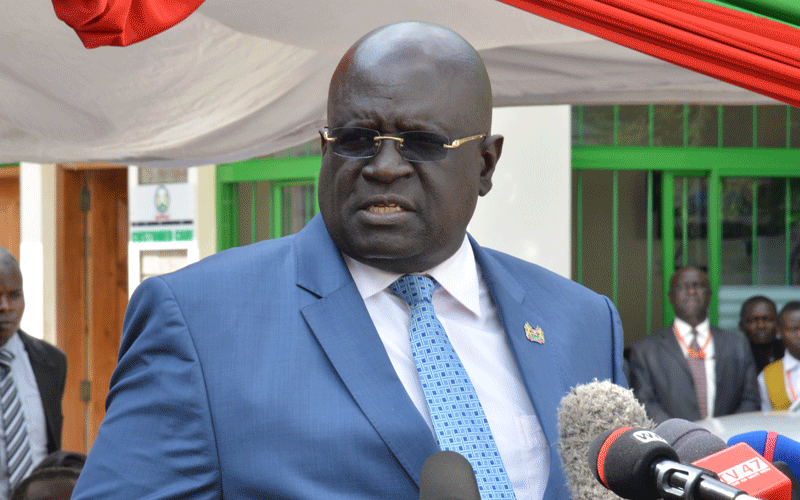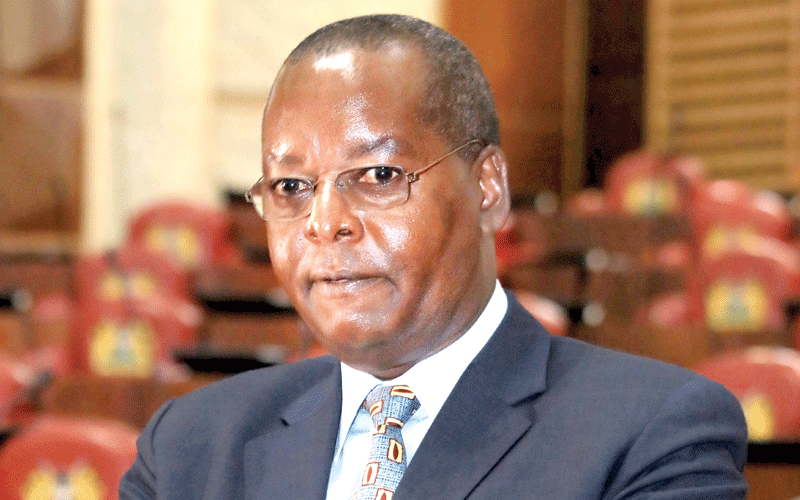State to stamp authority at universities

The government has moved to stamp its authority on control of the university councils, the top decision-making organs at the institutions of higher learning by reducing their powers.
In a Bill sponsored by National Assembly Majority Leader Amos Kimunya, the Education ministry proposes far-reaching changes that seek to clip the powers of the councils including limiting the number of deputy vice-chancellors to three.
If enacted, the appointment of the vice-chancellors and their deputies will be done by a selection panel and the responsible Cabinet Secretary will have the powers to sack council members or ignore their decision.
In the new Bill that seeks to amend the Universities Act 2012, Cabinet Secretary for Education will have powers to hire, fire and vacate any decision of the university council members.
The Bill which was introduced for First Reading in the National Assembly last week is also seeking to take away the powers of the university council as far as the appointment of vice chancellors and their deputies is concerned.
“The principle act is amended by inserting the following new section. As the designated appointing authority, the cabinet secretary shall have power to revoke any appointment to, or transfer or otherwise deploy the chairperson or any member of the council,” reads the amendment bill.
On the appointment of deputy vice chancellors, the Bill proposes that they should not be more than three who shall remain in office until the expiry of their terms of office. Currently the University of Nairobi has seven deputy Vice chancellors.
According to the bill which is seeking to introduce a new section 36A, unlike before, the CS, will not only have a say on the appointment of the vice chancellor and their deputies, but will have a similar say in the appointment of principals and deputy principals of university colleges and constituent colleges.
Terms of office expiry
The Bill also proposes that unlike previously where the appointment of the vice-chancellor was done by the CS after the recommendation of the university Council, this time round a selection panel, which the CS will appoint, will conduct the recruitment.
The new amendment comes at a time when the University of Nairobi is in the process of reconstitution of the University Council whose term expires in 10 days.
Education Cabinet Secretary George Magoha who once served as the university’s vice-chancellor is seeking to stamp his authority in the reconstitution of the council and has already had several run-ins with the council chaired by former Education Assistant Minister Prof Julia Ojiambo, including the recruitment and appointment of Prof Kiama Gitahi as the DVC.
Regarding the expiry of the term of the members of the Council, the amendment provides that it done at different times to ensure that their terms of office expires at different times unlike before where the councils determined by lot which two of their number shall vacate office after a period of three and four years respectively to ensure continuity in the activities of the Council.
On the approval of the statutes of the universities, which is a function of the council as they have powers to have them published in the Kenya Gazette, the new Bill proposes that the council submits the statutes to the CS who will be responsible for publication in the gazette.
Terms of office expiry
With the new amendments, the university council will now be limited to only employing staff, approving policies of the universities and budgets.
On the tenure of the tenure of the Vice-Chancellor of a public university, unlike previously where after holding office for a term of five was automatically eligible for a further term of five years, the new bill that a further re-appointment upon satisfactory performance.
“The Vice Chancellor of a public university shall hold office for a term of five years and shall be eligible for a further term of five years upon satisfactory performance,” reads the bill.












